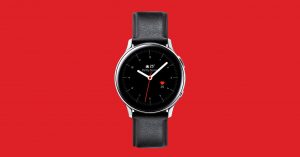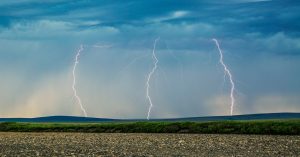September is Emergency Preparedness Month. I don’t find many National Days to be very useful (I’m still not sure what to do about “Meow Like a Pirate Day”) but for those of us who live in disaster-prone areas, like the hurricane-strewn Gulf Coast or the tornado plains of the Midwest, September is a good reminder to make sure that your emergency gear is up to date.
In my particular part of the country, “our” disaster is the the inevitable Pacific Northwest earthquake. I live in a tiny corner of Portland, Oregon, a city that will be affected by any quakes on the Cascadia subduction zone. When The New Yorker‘s in-depth investigation was published in 2015, it kicked off a days-long group text among my neighbors that was only mildly panicked in tone.
About my neighbors on that group text: We all live within four blocks of each other, in wood-framed houses in varying states of renovation or disrepair. Some of us have backyard gardens and chickens; we all have partners, small children, and dogs. Without my neighbors, I’m not sure I would’ve even prepared for an earthquake at all.
I first got a hint that I might need to get my butt in gear when I received a plaintive note: “When the earthquake happens, will someone check on us to make sure we’re not stuck on the second story of our house?” someone asked.
“We’ll make your house the meeting point,” another responded.
“Do we need to get stuff?” I asked, checking the online list. “Water? A toilet?”
“We have water filters and sterilizers,” my husband said to me, since he was receiving but pointedly not participating in the group text. “You know we can just walk down to the river and fill buckets, right?”
It took a few more back-and-forths about which houses we would pillage and when, but it didn’t take me long to realize that the most important resource to have on hand wasn’t my neighbors’ stuff: It was my neighbors themselves.
My Emergency Kit
But first, my kit. It will vary widely depending on where you live—a go-bag on the Gulf Coast will look a lot different than a tornado shelter’s supplies—but if you’re assembling one, you may already own a lot of what you need. For example, my kids’ emergency earthquake kits for school include items like a space blanket, glow sticks, a change of clothes, granola bars, and juice boxes.
I keep a small household emergency kit in a plastic bin in our garage. It includes several days’ worth of freeze-dried camping meals, a few flashlights, a fire extinguisher, and a plastic hand pump for getting water out of the 55-gallon rain barrel that I have stored in our backyard.
If you want to start prepping for a disaster, I suggest you start by regularly waving and saying hi to the people around you.
A lot of camping gear can be repurposed as emergency gear as well. Everyone, including my two toddlers, has a pair of sturdy boots. We have sleeping bags, and sleeping pads. We have ropes, first-aid supplies like moleskin, Neosporin and athletic tape, headlamps, hatchets, camp stoves, propane, and water filters, all neatly lined up in milk crates in our garage.
Portable emergency generators and man-powered machines like a hand-crank radio used to be on many emergency kit lists. Here, the technology has vastly improved and there are a number of far more affordable, and less bulky, alternatives to a huge, noisy generator that you may never have to use. For example, BioLite campstoves can charge your phone with heat generated by burning twigs and sticks. GoalZero solar panels are lightweight, easy to store, and can be set up in your backyard to power your phone.
Of course, that’s presuming that you don’t have vulnerable members of your household who have respirators or other important medical equipment, in which case you may need a generator anyway. Young children will also need emergency infant supplies, like diapers or formula. My third child, my dog, is microchipped and wears a pet GPS tracker, in case she forgets that sticking with us is her best chance of survival. We also have a leash, a muzzle for being around large groups of panicked strangers, and a week’s worth of dry dog food and poop bags.
Skill Share
If you’re friends with your neighbors, they may cover bases that you’ve missed. I bought a rain barrel, but several husbands with camping buckets offered to make trips to the river to refill it. One neighbor has a chest freezer, which is full of food that will need to be eaten quickly. Another is an emergency room nurse, with top-notch first aid skills.



